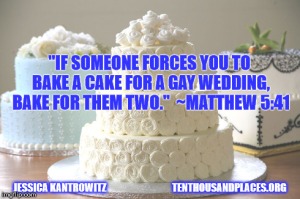I think we need to be honest... our relationships are universally faulty. That is why we can are so captivated by stories be they comedies, dramas, or tragedies... because there are faults and failings that permeate our relationships with each other. The problem is that while we can recognize in art the faults inherent to our relationships we seem to be unable to do so when it comes to our day to day lives.
As a rule our attempts at relationships are incomplete. We do not become irrevocably "one"with a person to a state of fullness, completeness, and wholeness. But we maintain these expectations regardless of how problematic they are. We maintain them even though, on account of their impossibility, they create a system where happiness and peace of mind are impossible to find. When it comes to creating relationships without faults, without comedy, drama, and tragedy... we are going to fail.
 |
| Expectations are Important! |
This is a difficult truth to recognize. We want to be the perfect friend, spouse, parent, child. We want to live into these amazing standards that if we could just get right then life would be golden. We do not want to read a statement that says we fail to contribute everything another person needs in the midst of our relationship with them. We confuse the statement, we cannot be another persons all and all, with the statement, we are not giving our all.
Let us say that I honestly commit my all to a relationship, every fibre of my being committed to another person... I am still not going to be able to provide everything they need. It is just not going to happen and that is a reality for each and everyone of us. The reality is that to complete disregard everything but the needs of another individual is not a healthy place for any of us to be in. The reality is that to expect someone else to enter into that space for ourselves or another is to put forward a set of expectations that is abusive.
 |
| Hardness of Heart does not build relationships. |
When Jesus speaks of the hardness of heart held by husbands towards their wives, and do note that the chastisement is only directed towards husbands, it is my belief that what he was speaking to was the propensity of husbands to make themselves like unto God. He was speaking to their propensity to expect wives to utterly disregard their own needs and sacrifice their very beings in an attempt to provide everything for them. When wives failed to live into these inherently abusive expectations then husbands could discard them. This type of thing will no longer stand... it is not the purpose of the relationships we are called to have with one another.
What the pharisees are talking about is a system of relationships where men are served by women, where men can cast out women when the needs of the man are not met, and where women are basically powerless. What Jesus is talking about is a system where distinct individuals were created and are joined as one equal mutuality, where needs are held in common and provision of them flows from God, and where the abuse and discarding of either party by the other is an offense against God.
We were not created to be alone, we were not created to be as gods lording over each other and forcing others into self sacrifice, we were created to live in mutual relationships that seek provision from God. This is a truth that should permeate itself through every relationship matrix in our live and for which our calls to be spouses should be Icons.
Over the past centuries this and other parts of scripture have been abused as calls to create a hierarchy of privilege with straight males staying at the pinnacle and all others in subservience to them. This has had continual impact on the lives of women and members of the LGBTQ+ community who are asked to either meet the expectations of straight men or be cast aside. In reality what Jesus is doing here is not laying down a new prescription about marriage but requiring the pharisees to interpret their understanding of the laws about divorce in the context of the summary of the law, thou shall love the lord thy God with all they heart, with all thy mind, with all thy soul, and thou shall love thy neighbor as thyself.
Our relationships are going to be faulty. They will not fulfill all our needs. They will be outside of the false expectations society presents for them. As Christians we have to recognize that is ok and that these expectations are not our expectations. The expectations for our relationships is that they are seeking to be done in the midst of love for God, love for ourselves, and love for others and bringing others to do the same. When we require expectations in our relationships beyond this we are hardening our hearts. When we recognize that living into the summary of the law is a life long journey of understanding for all involved, not a static set of laws and expectations, something that we and those around us are going to fail as we go about it... then and only then can we begin to take it up in truth. Then, and only then, can we embrace the faults, the comedy, the drama, the tragedy... not as points of failure but points of success.


